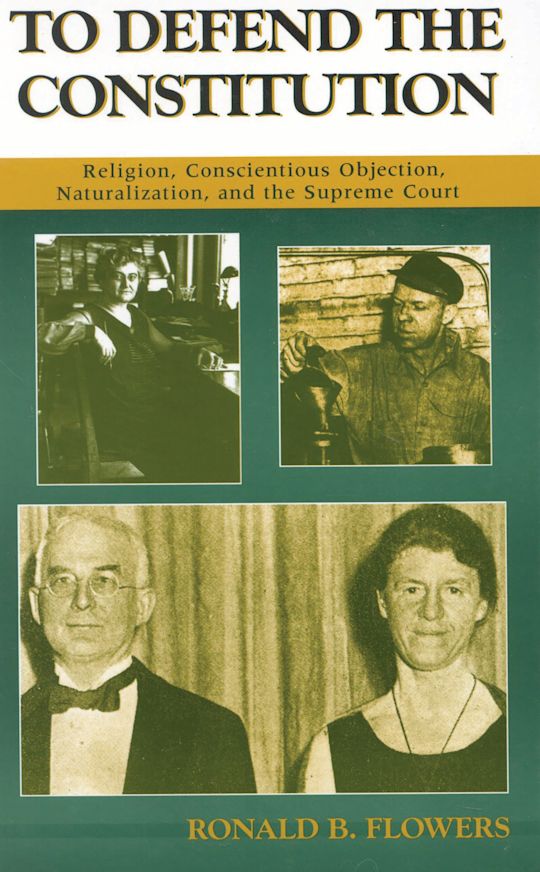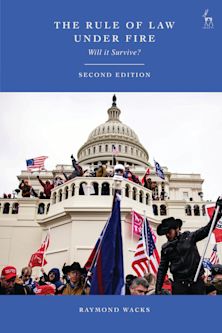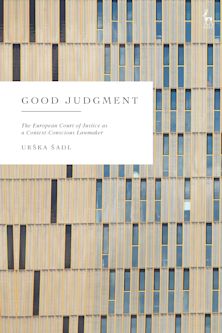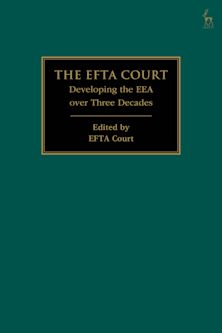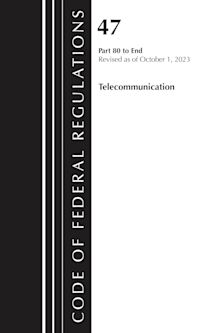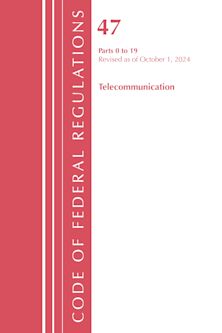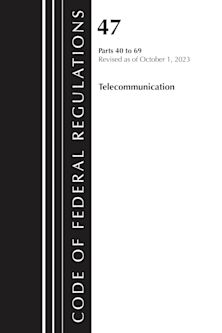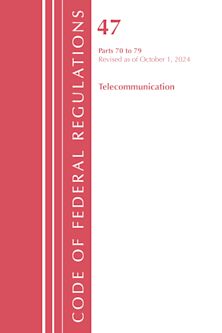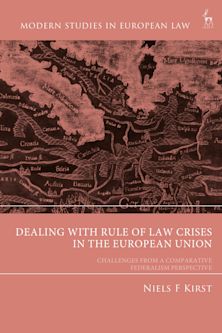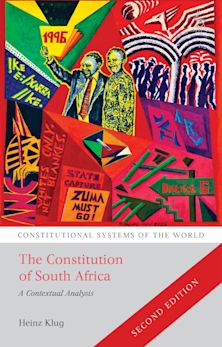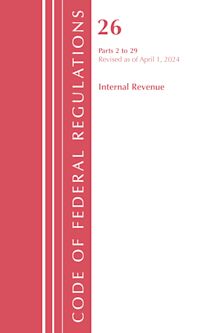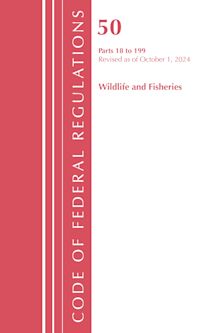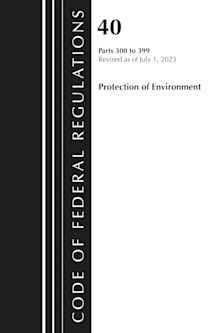- Home
- ACADEMIC
- Law
- Constitutional and Administrative Law
- To Defend the Constitution
To Defend the Constitution
Religion, Conscientious Objection, Naturalization, and the Supreme Court
To Defend the Constitution
Religion, Conscientious Objection, Naturalization, and the Supreme Court
This product is usually dispatched within 1 week
- Delivery and returns info
-
Free CA delivery on orders $40 or over
You must sign in to add this item to your wishlist. Please sign in or create an account
Description
People have been denied citizenship in America for many reasons. Would it surprise you to learn that four of those people were denied because they were conscientious objectors to war? The government believed that because they were not willing to bear arms in defense of the country, they were not attached to the principles of the Constitution, as required by naturalization law. Ironically, none of these people were eligible for military service because of their age, and two of them were women. Furthermore, when both women were denied citizenship it was during a period when women could not serve in the military.
Following overviews of the history of immigration and pacifism in America, chapters are devoted to the four different forms of conscientious objection: philosophical absolute pacifism, religiously informed absolute pacifism, selective conscientious objection, and conscientious cooperator. Each chapter discusses the individual, the arguments for their claim to citizenship, the government's arguments against them, and an analysis of the Supreme Court Opinion in their case. In short, each chapter gives a comprehensive treatment of the personalities and the issues involved.
A fascinating and informative read for theology and law students, scholars and for those intrigued in immigration and/or pacifism.
Table of Contents
Chapter 2 One Immigration and Naturalization
Chapter 3 Two Peace and War
Chapter 4 Three Rosika Schwimmer: "...You Led the Way"
Chapter 5 Four Douglas Clyde Macintosh: Alien Theologian
Chapter 6 Five Marie Averil Bland: In Praise of Conscience
Chapter 7 Six Harbingers of Change?
Chapter 8 Seven James Louis Girouard: "The Correct Rule of Law"
Chapter 9 Eight Death and Legislation
Chapter 10 Epilogue
Chapter 11 Appendixes
Chapter 12 Bibliography
Chapter 13 Case Index
Chapter 14 Name Index
Chapter 15 Subject Index
Chapter 16 About the Author
Product details
| Published | Sep 26 2002 |
|---|---|
| Format | Hardback |
| Edition | 1st |
| Extent | 536 |
| ISBN | 9780810845442 |
| Imprint | Scarecrow Press |
| Dimensions | 221 x 147 mm |
| Series | ATLA Monograph Series |
| Publisher | Bloomsbury Publishing |
About the contributors
Reviews
-
With clear-eyed understanding of church-state history and an incredible attention to detail. Ron Flowers opens up the tangle of conscientious objection and naturalization. What comfort to find a study by a first-class scholar of the United States Constitution and religion who grasps freedom of conscience. Flowers...opens a window on the converging streams of immigration and pacifism issues. This book deserves and demands the serious personal attention of every scholar in religion, political science, government, and law. It is full of primary sources and adds up to a satisfying completeness and calls forth conclusions.
Journal of Church and State
-
...Flowers provides vivid illustrations of the cultural context for these varied lawsuits, noting the diverse public interaction with these cases. Intellectually, Flowers' subjects span a spectrum of conscientious cooperation....To Defend the Constitution provides an impressive analysis of immigration, principled dissent, and legal conflict in American history. Student[s] of pacifism and religious politics in American life should include this work in their bibliographic survey.
Religious Studies Review
-
To Defend the Constitution is a welcome addition to the literature on the relationship between religion and civil authority in the United States. . . . While Flowers's book is decidedly a scholarly work produced by a very fine scholar, a more general audience can also read it with great profit. Flowers has built his treatment around four persons-Rosika Schwimmer, Douglas Clyde Macintosh, Marie Averil Bland, and James Louis Girouard-all of whom were denied citizenship because they had conscientious objection to war or, at least, to combatant status. He tells their stories with grace and drama, and the result for anyone is a wonderful reading experience that combines pure enjoyment with profound illumination. Flowers has supplemented his fine narrative with 28 appendices-cases, testimonies, oral arguments, media accounts, reactions of organized religious groups, and other documents-that help the reader to see the stories of these four brave persons in the larger context of the evolution of an important civil right in America.
Derek H. Davis, Director, J. M. Dawson Institute of Church-State Studies









